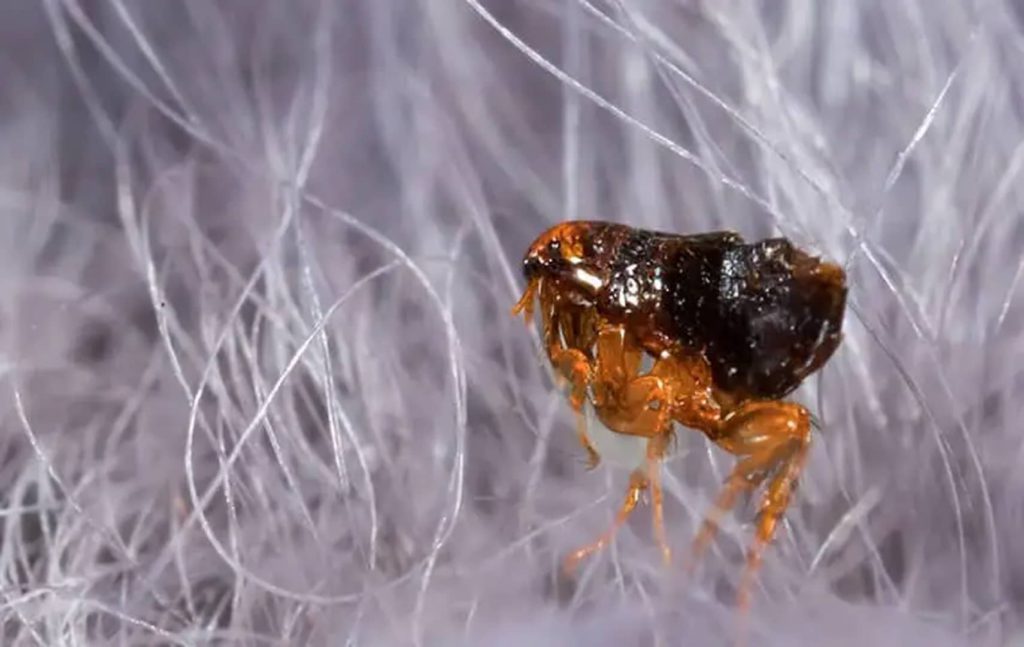
What Are Fleas?
Fleas are small blood-feeding insects most commonly associated with pet owners, but it is important to understand that these pests can find their way onto any property, whether pets are present or not!
Fleas are well known for their exceptional jumping abilities. Being able to jump great heights allows them to move quickly out of the way of danger or jump onto one of their preferred animal hosts. A body that is flat from side to side and covered in a hard shell protects them from being squished.
Prolific breeders - a single female can lay more than 5,000 eggs in a lifetime - fleas have a knack for taking over any space they are introduced to, whether that be outside in our yards or inside our homes.
Need To Get Rid of Fleas?
Are Fleas Dangerous?
There is no doubt that fleas jumping around your home and biting you and your pets is annoying, but fleas are more than just an annoyance. They can spread some diseases, though this is not a huge threat in the U.S. Fleas feed on blood as their sole food source, with cats, dogs, rodents, and wild animals as their preferred hosts; there is some comfort in knowing that while fleas certainly will bite us and feed on our blood, we are not their preferred hosts.
The biggest concern with fleas is that many people and pets are allergic to their saliva. Flea-bite allergic dermatitis causes intense itching, scabbing, secondary infections, and in our pets, hair loss. Another concern with fleas is that they spread parasitic tapeworms to both people and pets.
Why Do I Have a Flea Problem?
Fleas thrive in Florida. Our warm, humid weather conditions and abundant supply of wildlife provide them with perfect environmental conditions and easy access to food.
Wild animals are the flea’s primary host; they live most of their short lives on the backs of their animal hosts, feeding and breeding. Females lay their eggs on the backs of a host, and as the animals move, the eggs roll off onto the ground, where they will develop into new biting adults. As animals travel across your yard, flea eggs can end up causing a large and difficult-to-control infestation.
Where Will I Find Fleas?
Fleas not living on the body of an animal host wait for one in damp, humid areas. In our yards, fleas tend to stay in shady spots, areas of clutter, and in dense vegetation, the same places where their animal hosts hang out. The damp soil under decks, porch steps, shrubs, mulch, leaf piles, and woodpiles tend to attract fleas.
Those fleas that have found a way inside either on you, your pets, or an item like a secondhand piece of furniture or rug can thrive indoors. In our homes, fleas often hide in dark crevices and develop from egg to adult in the following areas:
- Bedding
- Behind wood trim or baseboards
- In upholstered furniture
- Under rugs
- Pet bedding
How Do I Get Rid of Fleas?
Fleas are tiny, but their prolific breeding habits and small size make them very difficult pests to eliminate from Florida properties. The best way to get rid of these biting pests is by partnering with a local and experienced pest professional.
At Trad’s Pest Control, we will provide the effective treatments necessary to get rid of fleas from inside your home or outside in your yard. Our flea control services can be added to one of our pest control or lawn care packages, providing you with the most comprehensive services possible. Learn more about any of our reliable home pest control or commercial pest control options in Jacksonville by reaching out to us today!
Let Us Help You Get Rid of Fleas
How Can I Prevent Fleas In The Future?
We want to provide you with the following flea prevention strategies to help you maintain a property not overrun with fleas.
- Perform regular yard maintenance to make your yard less welcoming to fleas.
- Used furniture and rugs often are contaminated with fleas; inspect secondhand items for fleas before bringing them into your home.
- Regularly vacuum.
- Wash bedding. Fleas love to hide within our bedding and our pet’s bedding.
- Call your pet’s veterinarian to place them on a year-round flea protection program to stop your pets from introducing fleas into your home.
